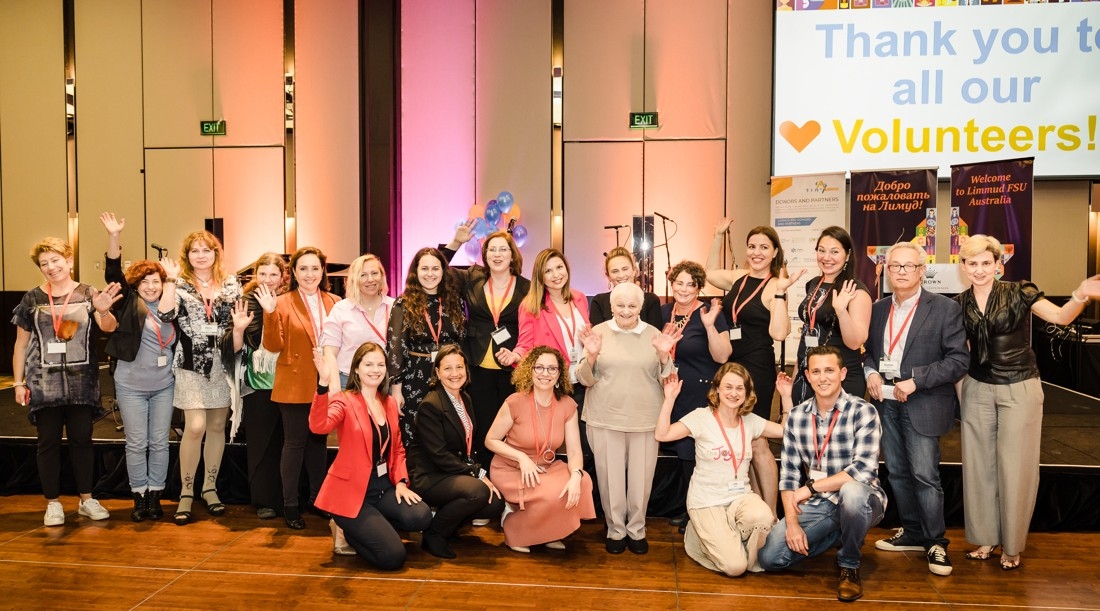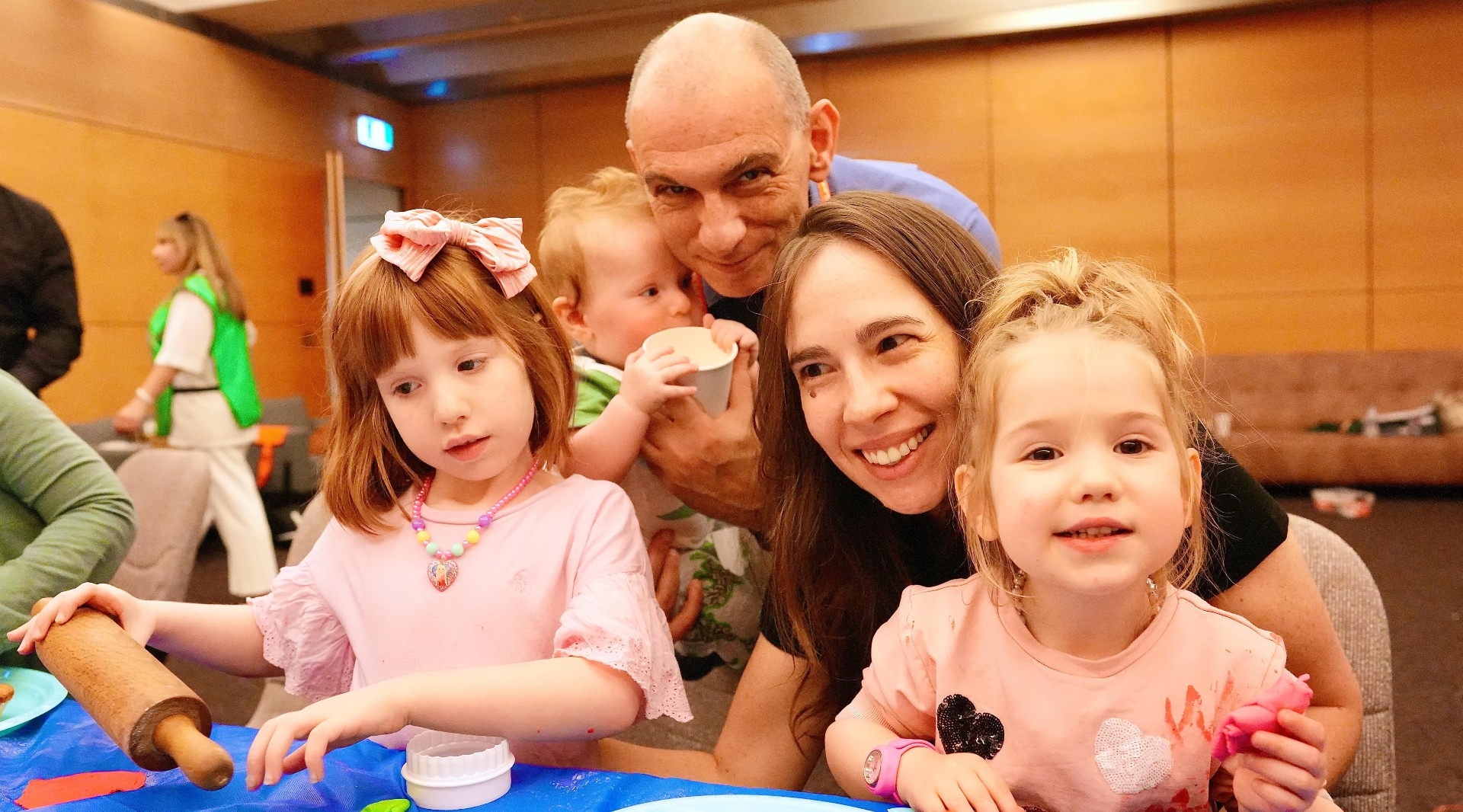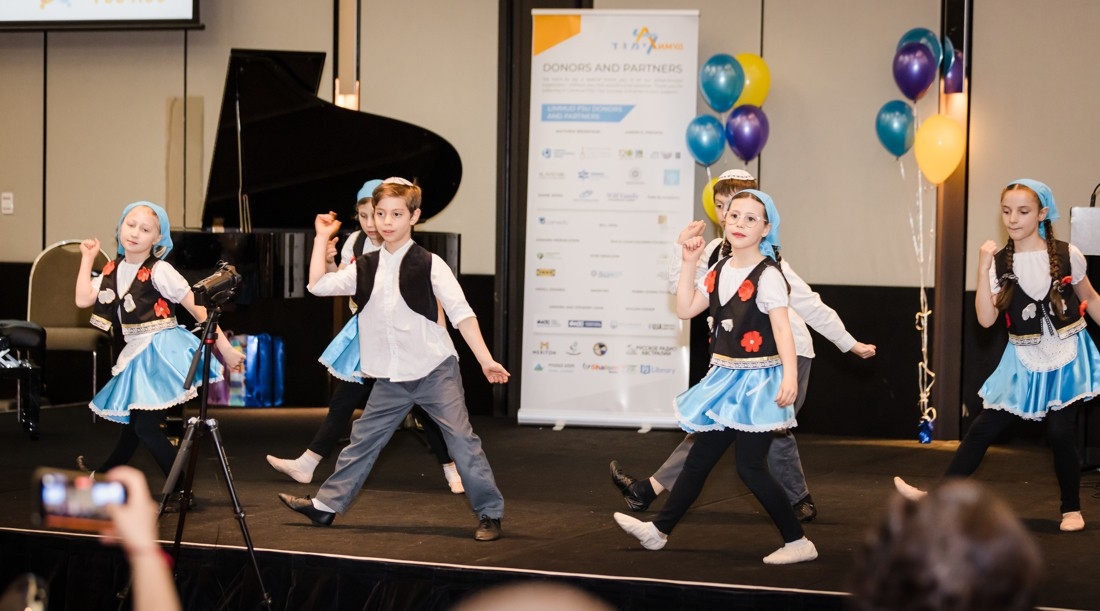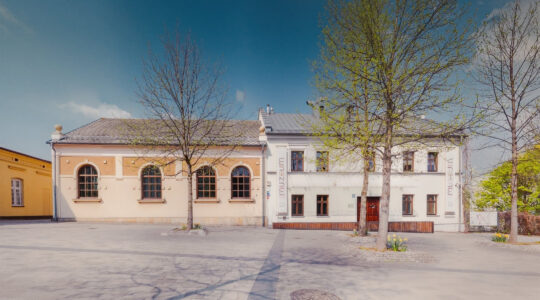When things finally began returning to normal in Australia after nearly three years under one of the world’s strictest Covid protocols, Australian Jews didn’t hesitate to celebrate.
In November, Jews with the roots in the former Soviet Union who live in Australia heralded their heritage with a pair of long-awaited festivals in the country’s two biggest cities, Nov. 6 in Sydney and Nov. 13 in Melbourne. Each event attracted about 200 people. Limmud FSU Australia hosted both festivals in close partnership with the Zionist Federation of Australia or ZFA, marking the FSU Jewish community’s first in-person, large-scale events since 2018.
“For a while, we couldn’t travel more than 5 kilometers from our homes,” said Ukrainian-born Inna Polura, who worked logistics for Limmud FSU’s first Sydney festival back in 2015 and now volunteers at the Sydney Jewish Museum. “This last event was very successful, and at least 50 kids attended. We see a huge potential here.”
Moscow-born real estate agent Elena Sladkova, 25, added, “Finally we were able to do it, and this was one of the best festivals our community has seen in a very long time.”
About a quarter of Australia’s 120,000 Jews were born in the former Soviet Union or are children of immigrants from the former USSR. Limmud FSU organizes gatherings all over the world to strengthen Jewish identity and a sense of Jewish community among Jews with roots in the USSR.
At the Limmud festivals in Australia, which were held in both English and Russian, representatives of three nonprofit groups — the Blue Peony Foundation, the Svoboda Alliance and the Russian-Speaking Jewish Community Association — shared tips on how to assist Ukrainians suffering from the war that has devastated their country.
The Sydney event, held at New South Wales University, featured such presenters as Amir Maimon, Israel’s new ambassador to Australia; Leon Goltsman, Waverley Councillor for Bondi Ward, Sydney; Ron Weiser, former president of the ZFA; Diana Ulitsky of the social service agency JewishCare NSW; and Rabbi Yehoram Ulman of the Sydney Beth Din. The Melbourne event took place at the Crowne Promenade Conference Centre, with such prominent speakers as MP David Southwick, deputy Victorian Liberal Party leader; and Sebastian Inwentarz, ZFA Birthright’s Australia director.
Some of the festivals’ sessions focused on uniquely Australian themes, such as Professor Ludmila Stern’s history lecture on the World War II-era prosecution of two elderly Ukrainians and a German in the Australian city of Adelaide for atrocities against Jews. Jeremy Jones, director of international and community affairs at the Australia/Israel & Jewish Affairs Council, spoke of local efforts to secure the emigration of Soviet Jews to Australia in the 1970s and ’80s. In Melbourne, Simon Holloway, head of education at the Melbourne Holocaust Museum, spoke on the dramatic emergence of Holocaust research in the former Soviet Union.
There were plenty of lighter sessions among the three dozen or so at each festival. At the Melbourne event, Orthodox psychotherapist Miriam Dolnikov talked about myths and facts about Orthodox sex. Rabbi and chef David Trakhtman spoke about “spiritual gastronomy.”

Volunteers, like these ones in Melbourne, are an indispensable part of those who organize Limmud FSU conferences. (Yuri Peress, PY-PHOTO)
In between sessions, entertainment was provided by the Russian School Lider Dance Ensemble as well as students from the AMS Music Centre and VulgarGrad, a seven-piece, Melbourne-based band that plays unique funk and punk renditions of traditional folk songs from the former Soviet Union. A special performance was held in Sydney by Ukraine-born Israeli singer Vladi Balyberg, and both events featured a unique concert by a prominent Israeli actor and singer, Vladimir Friedman. There were also workshops on challah baking and martial arts for kids.
“The last three years have shown that everything in the world can change overnight. But the fact that Limmud FSU continues to work and be active is priceless,” said Marina Rozenberg Koritny, head of the World Zionist Organization’s Aliyah Promotion Department. “This organization does wonderful, significant work in Jewish education in the Diaspora, and continues to remind us all the time that we are all one people.”
This year alone, Limmud FSU has held festivals in New Jersey; Niagara Falls, Canada; Baku, Azerbaijan, and Boston. A Dec. 1-3 gathering in Tiberias, Israel, was the year’s biggest event, with some 1,100 participants.
“It has been a long time since we last gathered in Australia,” said Limmud FSU founder Chaim Chesler. “But the post-Covid Australian Jewish community, whose roots lie in the countries of the FSU, is just as vibrant and hungry for community and learning opportunities as before. We are delighted to return.”

Events for children were part of the Limmud FSU conference in Sydney, Austrlia, on Nov. 6, 2022. (Veda Kucko)
Among Limmud FSU Australia’s key supporters are the Conference on Jewish Material Claims against Germany, the ZFA, the World Zionist Organization, Genesis Philanthropy Group, the Jewish National Fund-Keren Kayemet LeIsrael and Wilf Family Foundations. Since Limmud FSU’s first conference in 2006, the group has hosted more than 80 events worldwide, drawing over 80,000 participants. The group’s co-founder is Sandra Cahn; Matthew Bronfman is its chairman; and Aaron Frenkel is president.
“I think the best way to expand your network is by volunteering and participating in the community, and that’s why I’m involved with Limmud,” said Russia-born Maria Gelvan, 38, who coordinated the activities of the 28 volunteers at the Melbourne festival. “It’s an absolutely amazing opportunity for unifying the Jewish community.”
Luiza Levenfus, 44, who immigrated to Israel from the former Soviet republic of Azerbaijan at age 12 before moving to Melbourne when she was about 20, says Jewish identity is at risk in Australia’s multicultural society.
“There is a big risk of losing our connection to Judaism,” Levenfus said. “I feel like my kids don’t understand the Jewish side of things, even though their mom is Jewish and their dad is half-Jewish and half-Russian — especially in the suburb where we live.”
That’s why taking the time to go to the Limmud FSU festival was so important, she said.
“People there get me. I don’t have to explain to them why I have tears when I hear Hebrew songs,” Levenfus said. “We’re all on the same page.”
JTA has documented Jewish history in real-time for over a century. Keep our journalism strong by joining us in supporting independent, award-winning reporting.
This article was sponsored by and produced in partnership with Limmud FSU, which nurtures open, pluralistic, dynamic learning platforms across the world for Jews of all ages and backgrounds with roots in the former Soviet Union, while embracing the Jewish intellectual, cultural and religious traditions grounded in this shared experience. This article was produced by JTA’s native content team.
More from Limmud FSU





